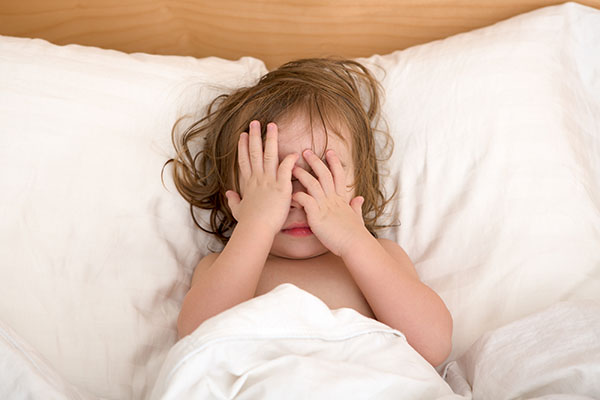You googled. We answered: Toddler Insomnia
Insomnia can be awful on adults. But when you’re the kidnapped victim of your child’s insomnia, it can feel even worse. In the wee small hours of the morning, you’re probably asking yourself how toddler insomnia even happens or what’s left for you to do when warm milk just doesn’t cut it.
What causes child insomnia?
- Stress. A toddler with loving parents, friends and a favorite toy should be living the happy days. But just like adults, kids can struggle with stress too. Take those wide-awake hours as an opportunity to have important conversations. Do they have a bully? Are they fighting with siblings? Have there been any changes like a death in the family, household move or marital struggles? Kids can worry more than we think, and it’s important to have regular parent-child conversations to build trust and teach them to communicate their emotions.
- Caffeine or sugars. The National Sleep Foundation recommends avoiding caffeine and large meals 2-3 hours before bedtime for an adult. The same goes for children in a major way. Most sodas and snacks contain levels of sugar or caffeine that may seem at manageable levels for adults but are impacting children at greater levels. Serve water instead of soda or tea at dinnertime and keep after-dinner snacks to the fresh fruit or veggie varieties.
- Environment. Take a look around the room. Temperature, noise, light levels and even mattress conditions can affect sleep. Try an ambient noisemaker or light-reducing curtains. Remove any screens in the bedroom. This includes TVs, tablets or phones. Children are especially sensitive to the light screens emit causing their circadian rhythm to be disrupted and resulting in later bedtimes, poorer sleep quality and a reduction in daytime alertness.
- Medications. Insomnia is often a side effect of drugs used to treat ADHD and other behavioral issues. Speak to your pediatrician to see if this could be what is keeping your child up at night.
- It’s medical. Conditions like asthma, allergies, eczema, sleep apnea, even growing pains can all be the root cause of insomnia. It can also be the first sign of neurodevelopmental disorders like autism and other syndromes. Try any lifestyle changes first; if the insomnia persists, schedule a physical health exam with your pediatrician.
After the cause has been identified, we can work to treat it and send everyone finally into dreamland.
The staff and physicians at West Wheeler Pediatrics have designed practices to best meet the needs of patients and their families, including early walk-in appointments starting at 7:30 a.m. every weekday, Monday evening hours from 5-7 p.m., and Monday and Wednesday evening hours for pediatric psychiatry. For more information, visit our website at augustahealth.org/chog or call 706-721-KIDS (5437).




